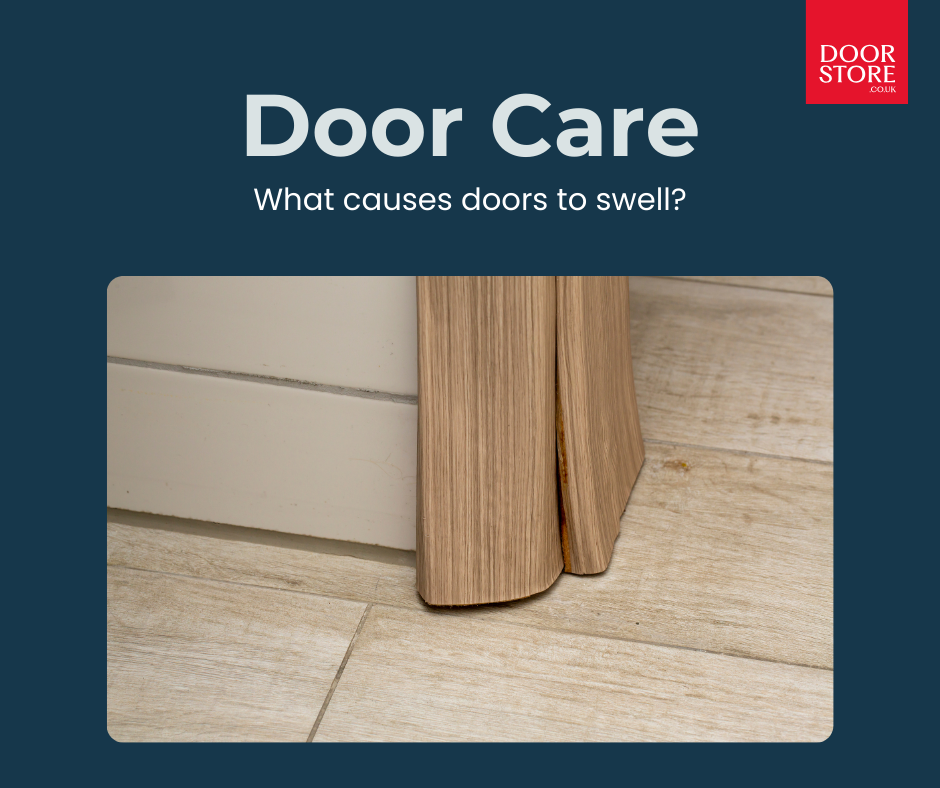
One of the most frustrating things that can happen at home is when your internal doors swell and refuse to be closed. Because most homes have 7 or more internal doors this problem can quickly get out of hand unless you try and treat the source of the problem. Here are a few reasons why your internal doors swell and what you can do about it to reduce this nuisance.
Humidity causes by seasonal changes
It’s quite common in the summer for doors to swell and start sticking as the humidity levels increase outside. As wood is a natural substance, it can absorb this excess moisture in the air and this causes the door to scrape along the floor or at other points in the frame. Similarly, if there is a period of heavy rainfall, this extra moisture in the air can also be absorbed, which means that depending on where you live you could suffer from this issue all year long, not just once a year.
Damp issues in the home
Our homes can sometimes suffer from damp or condensation build up, which can be attributed to many things – poor insulation, drying clothes indoors, not ventilating the rooms, leaving the bathroom door open after a shower to let steam escape, or suffering from rising damp. These issues can have knock on effect, such as causing mildew build up, a musty smell and of course causing doors to swell and stick.
Other causes of sticking doors
In some cases, internal doors may be misbehaving due to other factors, like being poorly fitted to begin with, hinges being too tight or too loose or starting to wear completely, or if you have painted or varnished the door and there are clumps of paint sticking to the edges this can prevent the door from closing properly.
Thankfully, you don’t have to live with this nuisance, as there are lots of ways to solve problems with sticking, swollen doors:
Don’t shave any wood off the door – this should be a last resort, especially if the issue is caused by seasonal changes as when the weather turns colder the door will contract again and then you’ll have a gap around the door which will let in draughts.
Varnish the doors, so it creates a protective seal and a tougher exterior and prevents the moisture from being absorbed as easily by the wood.
For a quick fix, use a hair dryer to blast some heat around the area which is sticking and evaporate the moisture to allow you to close the door.
If your home suffers from persistent damp problems, a dehumidifier might be a sensible investment to control excess moisture in your home.
Rub a candle or soap along the edges to help lubricate it slightly to make it easier to close.
Hopefully these tips will help you find the cause of your swollen internal door and allow you to treat them, but if you have any additional questions about your doors, internal or external, please just ask one of our helpful team. You’ll find all our contact information including our showroom locations on our website.
